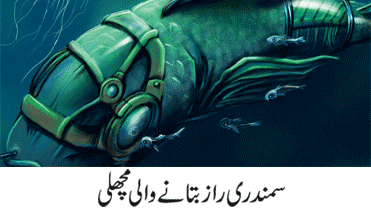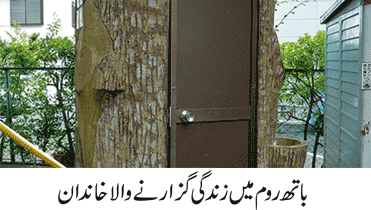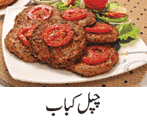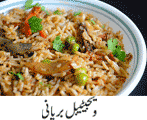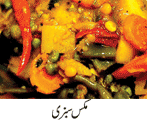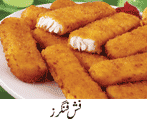Hadith About Fatherوالد/باپ کے بارے میں حدیث نبوی ﷺ
فہرست
Hadith About Father is The Best Door of Paradise 1. باپ جنت کا بہترین دروازہ ہے
It was narrated from 'Abdur-Rahman that: a man's father or mother - Shu'bah (one of the namators) was not sure - ordered him to divorce his wife, and he made a vow that he would free one hundred slaves if he did that. He came to Abu Darda' while he was praying the Duha, and he was making his prayer lengthy, and he prayed between Zuhr and 'Asr. Then he asked him and Abu Darda' said: Fulfill your vow and honor your parents. Abu Ad-Darda' said: I heard the Messenger of Allah (ﷺ) say: '(Honoring) one's father may lead one to enter through the best of the gates of Paradise; so take care of your parents, (it is so, whether you take care of them) or not.
Book: Sunnan e Ibn e Maja, Volume No. 3, Hadees No. 2089Abu Darda' heard the Prophet (ﷺ) say that: The father is the middle door of Paradise (i.e. the best way to Paradise), so it is up to you whether you take advantage of it or not.
Book: Sunnan e Ibn e Maja, Volume No. 5, Hadees No. 3663ایک شخص کو اس کی ماں نے یا باپ نے ( یہ شک شعبہ کو ہوا ہے ) حکم دیا کہ اپنی بیوی کو طلاق دیدے، اس نے نذر مان لی کہ اگر اپنی بیوی کو طلاق دیدے تو اسے سو غلام آزاد کرنا ہوں گے، پھر وہ ابوالدرداء رضی اللہ عنہ کے پاس آیا، وہ صلاۃ الضحیٰ ( چاشت کی نماز ) پڑھ رہے تھے، اور اسے خوب لمبی کر رہے تھے، اور انہوں نے نماز پڑھی ظہر و عصر کے درمیان، بالآخر اس شخص نے ان سے پوچھا، تو ابوالدرداء رضی اللہ عنہ نے کہا: اپنی نذر پوری کرو، اور اپنے ماں باپ کی اطاعت کرو۔ ابوالدرداء رضی اللہ عنہ نے کہا: میں نے رسول اللہ صلی اللہ علیہ وسلم کو فرماتے ہوئے سنا ہے: باپ جنت میں جانے کا بہترین دروازہ ہے، اب تم اپنے والدین کے حکم کی پابندی کرو، یا اسے نظر انداز کر دو۔
Book: Sunnan e Ibn e Maja, Volume No. 3, Hadees No. 2089 انہوں نے نبی اکرم صلی اللہ علیہ وسلم کو فرماتے سنا: باپ جنت کا درمیانی دروازہ ہے، چاہے تم اس دروازے کو ضائع کر دو، یا اس کی حفاظت کرو۔
Book: Sunnan e Ibn e Maja, Volume No. 5, Hadees No. 3663حَدَّثَنَا مُحَمَّدُ بْنُ بَشَّارٍ، حَدَّثَنَا مُحَمَّدُ بْنُ جَعْفَرٍ، حَدَّثَنَا شُعْبَةُ، عَنْ عَطَاءِ بْنِ السَّائِبِ، عَنْ أَبِي عَبْدِ الرَّحْمَنِ، أَنَّ رَجُلًا أَمَرَهُ أَبُوهُ أَوْ أُمُّهُ شَكَّ شُعْبَةُ، أَنْ يُطَلِّقَ امْرَأَتَهُ، فَجَعَلَ عَلَيْهِ مِائَةَ مُحَرَّرٍ، فَأَتَى أَبَا الدَّرْدَاءِ، فَإِذَا هُوَ يُصَلِّي الضُّحَى وَيُطِيلُهَا وَصَلَّى مَا بَيْنَ الظُّهْرِ وَالْعَصْرِ، فَسَأَلَهُ، فَقَالَ أَبُو الدَّرْدَاءِ: أَوْفِ بِنَذْرِكَ وَبِرَّ وَالِدَيْكَ، وَقَالَ أَبُو الدَّرْدَاءِ: سَمِعْتُ رَسُولَ اللَّهِ صَلَّى اللَّهُ عَلَيْهِ وَسَلَّمَ يَقُولُ: الْوَالِدُ أَوْسَطُ أَبْوَابِ الْجَنَّةِ فَحَافِظْ عَلَى وَالِدَيْكَ أَوِ اتْرُكْ.
Book: Sunnan e Ibn e Maja, Volume No. 3, Hadees No. 2089حَدَّثَنَا مُحَمَّدُ بْنُ الصَّبَّاحِ، حَدَّثَنَا سُفْيَانُ بْنُ عُيَيْنَةَ، عَنْ عَطَاءٍ، عَنْ أَبِي عَبْدِ الرَّحْمَنِ، عَنْ أَبِي الدَّرْدَاءِ، سَمِعَ النَّبِيَّ صَلَّى اللَّهُ عَلَيْهِ وَسَلَّمَ، يَقُولُ: الْوَالِدُ أَوْسَطُ أَبْوَابِ الْجَنَّةِ، فَأَضِعْ ذَلِكَ الْبَابَ أَوِ احْفَظْهُ.
Book: Sunnan e Ibn e Maja, Volume No. 5, Hadees No. 3663Father is Most Entitled To Highest Honoring After Mother 2. ماں کے بعد باپ سب سے زیادہ حسن سلوک کا حقدار ہے
Miqdam bin Ma'dikarib, may Allah be pleased with them, narrated that: Allah's Messenger said: Allah enjoins you to treat your mother's kindly -three times- Allah enjoins you to treat your fathers kindly, Allah enjoins you to treat the closest and the next closest kindly.
Book: Sunnan e Ibn e Maja, Volume No. 5, Hadees No. 3661Abu Hurairah, may Allah be pleased with them, said that: Allah's Messenger said: They said: 'O Messenger of Allah, whom should I treat kindly?' He said: 'Your mother.' He said: 'Then who?' He said:'Your mother. He said: 'Then who?' He said: 'Your father'. He said: 'Then who?' He said: 'The next closest and the next closest.'
Book: Sunnan e Ibn e Maja, Volume No. 5, Hadees No. 3658رسول اللہ صلی اللہ علیہ وسلم نے فرمایا: بیشک اللہ تعالیٰ تم کو اپنی ماؤں کے ساتھ حسن سلوک ( اچھے برتاؤ ) کی وصیت کرتا ہے یہ جملہ آپ صلی اللہ علیہ وسلم نے تین بار فرمایا بیشک اللہ تعالیٰ تم کو اپنے باپوں کے ساتھ حسن سلوک کی وصیت کرتا ہے، پھر جو تمہارے زیادہ قریب ہوں، پھر ان کے بعد جو قریب ہوں ان کے ساتھ حسن سلوک کی وصیت کرتا ہے۔
Book: Sunnan e Ibn e Maja, Volume No. 5, Hadees No. 3661 لوگوں نے عرض کیا: اللہ کے رسول! حسن سلوک ( اچھے برتاؤ ) کا سب سے زیادہ مستحق کون ہے؟ آپ صلی اللہ علیہ وسلم نے فرمایا: تمہاری ماں ، پھر پوچھا: اس کے بعد کون؟ آپ صلی اللہ علیہ وسلم نے فرمایا: تمہاری ماں ، پھر پوچھا اس کے بعد کون؟ آپ صلی اللہ علیہ وسلم نے فرمایا: تمہارا باپ ، پھر پوچھا: اس کے بعد کون حسن سلوک ( اچھے برتاؤ ) کا سب سے زیادہ مستحق ہے؟ آپ صلی اللہ علیہ وسلم نے فرمایا: پھر جو ان کے بعد تمہارے زیادہ قریبی رشتے دار ہوں، پھر اس کے بعد جو قریبی ہوں ۔
Book: Sunnan e Ibn e Maja, Volume No. 5, Hadees No. 3658حَدَّثَنَا هِشَامُ بْنُ عَمَّارٍ، حَدَّثَنَا إِسْمَاعِيل بْنُ عَيَّاشٍ، عَنْ بَحِيرِ بْنِ سَعْدٍ، عَنْ خَالِدِ بْنِ مَعْدَانَ، عَنْ الْمِقْدَامِ بْنِ مَعْدِ يكَرِبَ، أَنَّ رَسُولَ اللَّهِ صَلَّى اللَّهُ عَلَيْهِ وَسَلَّمَ، قَالَ: إِنَّ اللَّهَ يُوصِيكُمْ بِأُمَّهَاتِكُمْ ثَلَاثًا، إِنَّ اللَّهَ يُوصِيكُمْ بِآبَائِكُمْ، إِنَّ اللَّهَ يُوصِيكُمْ بِالْأَقْرَبِ فَالْأَقْرَبِ.
Book: Sunnan e Ibn e Maja, Volume No. 5, Hadees No. 3661حَدَّثَنَا مُحَمَّدُ بْنُ مَيْمُونٍ الْمَكِّيُّ، حَدَّثَنَا سُفْيَانُ بْنُ عُيَيْنَةَ، عَنْ عُمَارَةَ بْنِ الْقَعْقَاعِ، عَنْ أَبِي زُرْعَةَ، عَنْ أَبِي هُرَيْرَةَ، قَالَ: قَالُوا: يَا رَسُولَ اللَّهِ، مَنْ أَبَرُّ؟ قَالَ: أُمَّكَ ، قَالَ: ثُمَّ مَنْ؟ قَالَ: أُمَّكَ ، قَالَ: ثُمَّ مَنْ؟ قَالَ: أَبَاكَ ، قَالَ: ثُمَّ مَنْ؟ قَالَ: الْأَدْنَى فَالْأَدْنَى .
Book: Sunnan e Ibn e Maja, Volume No. 5, Hadees No. 3658Islam lays great emphasis on loving, respecting and caring for your parents.
While disobedience to father is a greater sin (Gunah e Kabeera), being obedient to him not only serves as the fulfilment of an important religious obligation but also entitles you for Almighty Allah’s blessings. On one occasion, the Holy Prophet Hazrat Muhammad (ﷺ) has been narrated as saying that caring for and serving your father opens one of the best doors to Paradise.
Here are the Quranic verses and Hadith about father.
Verse about Father:
According to the Glorious Quran, showing obedience to parents is next in importance only to Allah’s worship. Allah orders to treat your parents with kindness and utter a noble word. You mustn’t even say “Uff” if any one or both reach the old age. Verse 23 of Chapter 17 (Surah Al-Isra is particularly notable in this regard.
وَقَضَىٰ رَبُّكَ أَلَّا تَعْبُدُوا إِلَّا إِيَّاهُ وَبِالْوَالِدَيْنِ إِحْسَانًا ۚ إِمَّا يَبْلُغَنَّ عِندَكَ الْكِبَرَ أَحَدُهُمَا أَوْ كِلَاهُمَا فَلَا تَقُل لَّهُمَا أُفٍّ وَلَا تَنْهَرْهُمَا وَقُل لَّهُمَا قَوْلًا كَرِيمًا
Translation: And your Lord has decreed that you not worship except Him, and to parents, good treatment. Whether one or both of them reach old age [while] with you, say not to them [so much as], "uff," and do not repel them but speak to them a noble word.
Quranic Dua for Parents:
Allah has taught a Duafor parents in the Holy Quran. It is given in verse 24 of Chapter 17.
وَاخْفِضْ لَهُمَا جَنَاحَ الذُّلِّ مِنَ الرَّحْمَةِ وَقُل رَّبِّ ارْحَمْهُمَا كَمَا رَبَّيَانِي صَغِيرًا
Translation: “And lower to them the wing of humility out of mercy and say, "My Lord, have mercy upon them as they brought me up [when I was] small."





